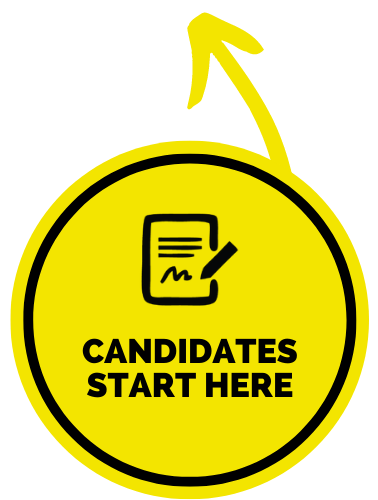
Job hunting can be a daunting process filled with highs and lows, and one of the toughest aspects to navigate is rejection. Whether it’s from a direct recruitment effort or through a temp agency, facing rejection is never easy. However, understanding how to manage it effectively can make a significant difference in your career journey. Here are six key ways to deal with rejection on your job search:
1. Realise It’s Rarely Personal
Rejection in the job market often feels like a personal blow, but it’s essential to remember that it’s usually not a reflection of your abilities or character. Decision-makers in recruitment and talent acquisition are focused on finding the best fit for their company’s needs, which may involve a variety of factors beyond your control. Their choices are influenced by organisational priorities, team dynamics, and specific role requirements. Accepting that these decisions are part of a larger process can help you take it on the chin and move forward with your job search.
2. Be Careful Where You Vent
The frustration of rejection is real, and it’s natural to want to express your feelings. However, be mindful of where and how you do this. Venting to close friends and family can be therapeutic, but avoid airing your grievances on social media. Potential employers and hiring agencies near you often check candidates’ online presence, and public negativity can impact how companies perceive you. Keeping your frustrations private ensures your professional reputation remains intact.
3. Send a Thank You Email
Regardless of the outcome, sending a thank you email after an interview or a CV review is a powerful gesture. It demonstrates your professionalism, respect for the interviewer’s time, and keeps you in their good graces. This act of gratitude can leave a lasting impression, increasing the likelihood that you’ll be considered for future roles within the organisation or recommended to other hiring managers.
4. Ask for Feedback Where Possible
Constructive feedback is invaluable in refining your job search strategy. If you’re turned down, politely request feedback on your CV, interview technique, or overall application process. Understanding any areas for improvement can give you crucial insights into what hiring managers are looking for and help you tailor your approach accordingly. This step not only enhances your skills but also demonstrates your willingness to grow and adapt, qualities that are highly valued in any career.
5. Take a Step Back to Review the Process
After experiencing rejection, it’s beneficial to review your job search process. Identify which elements are within your control, such as the quality of your CV, your interview preparedness, and your application methods. Contrast these with factors outside your control, like the company’s internal decisions or other candidates’ qualifications. By analysing these aspects, you can pinpoint areas for improvement and adjust your strategy. This proactive approach can lead to better outcomes and a more resilient mindset.
6. Streamline Your Search
Focusing your efforts on roles that genuinely interest you and align with your values can enhance your job search effectiveness. Explore different job posting sites, utilise job alerts, and consider working with a recruitment specialist or head hunter to find positions that match your skills and aspirations. Diversifying your approach by trying various platforms and methods can also yield better results. Additionally, targeting companies with strong DEI (Diversity, Equality, and Inclusion) policies ensures that you’re applying to organisations committed to reducing hiring bias and promoting inclusive work environments.
Additional Tips
- Leverage Digital Talent Platforms: In today’s digital age, recruitment online has become a vital resource. Utilise job advertisement and recruitment marketing tools to stay updated on the latest vacancies and staffing opportunities.
- Engage with Recruitment Agencies: Recruitment agencies and staffing companies can provide personalised assistance, helping you find roles that fit your profile and career goals.
- Utilise Internal Recruitment Channels: Keep an eye on internal recruitment opportunities within companies where you have connections. Internal moves can often be less competitive and more aligned with your career trajectory.
Navigating rejection in your job search is challenging, but with the right strategies, you can turn setbacks into opportunities for growth. Stay positive, keep refining your approach, and remain open to learning from each experience. Your resilience and determination will ultimately lead you to the right opportunity.
FAQs
1. Why is it important to realise that rejection is rarely personal?
Understanding that rejection is rarely personal helps you maintain a positive outlook and resilience in your job search. Decision-makers are focused on finding the best fit for their company, which involves various factors beyond your control. Recognising this can help you move on more quickly and continue your job search with confidence.
2. What are the risks of venting about job rejection on social media?
Venting about job rejection on social media can negatively impact your professional reputation. Potential employers and hiring agencies often review candidates’ online presence, and public displays of frustration or negativity can deter them from considering you for future roles. It’s best to keep such discussions private with trusted friends and family.
3. How can sending a thank you email after an interview benefit my job search?
Sending a thank you email after an interview demonstrates professionalism and respect for the interviewer’s time. It leaves a positive impression and keeps you fresh in their mind for future opportunities. This gesture can also highlight your interpersonal skills and cultural competence, important aspects in companies with strong DEI policies.
4. What type of feedback should I ask for after being rejected for a job?
After being rejected, you should politely ask for feedback on your CV, interview technique, and overall communication skills. Constructive feedback can provide valuable insights into areas for improvement and help you tailor your approach in future applications, enhancing your chances of success.
5. How can I streamline my job search to be more effective?
To streamline your job search, focus on roles that genuinely interest you and align with your values. Utilise different job posting sites, set up job alerts, and consider working with recruitment specialists or head hunters. Additionally, targeting companies with strong DEI policies ensures you are applying to organisations committed to inclusive and fair hiring practices.
About Job Crystal
Job Crystal is a leading innovator in the field of recruitment AI, dedicated to creating cutting-edge technologies that help speed up the recruitment process. With a strong focus on ethics, transparency, and human collaboration, we strive to develop AI systems that empower individuals and organisations while upholding the highest standards of responsibility.
About the Author

Kelly Louw, COO
With over 18 years of experience in the Recruitment Industry, Kelly is a specialist within operations in the RecTech space. She understands Recruitment inside and out, and makes sure that the human side of recruiting is always top priority










